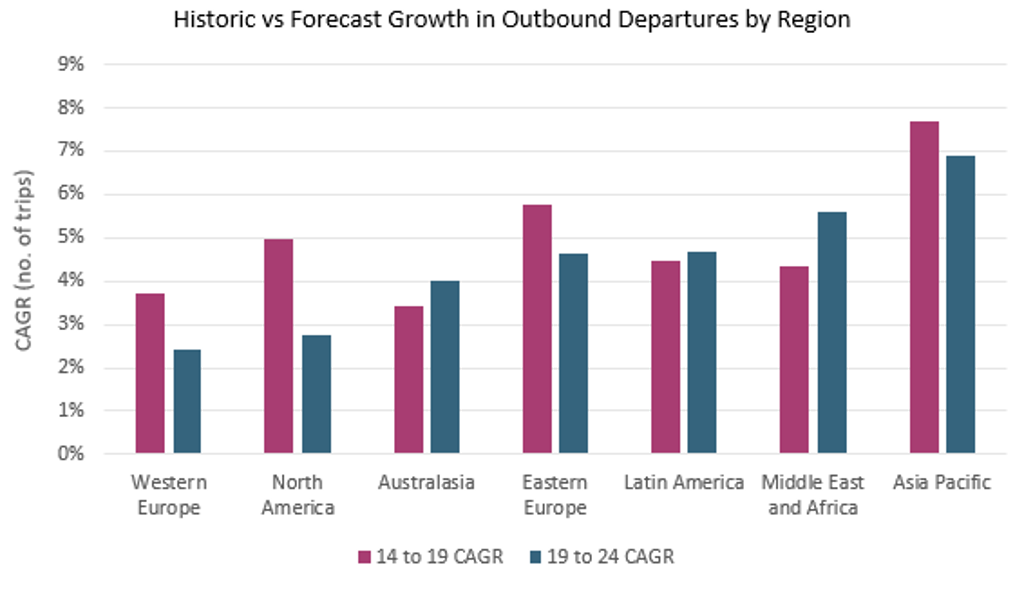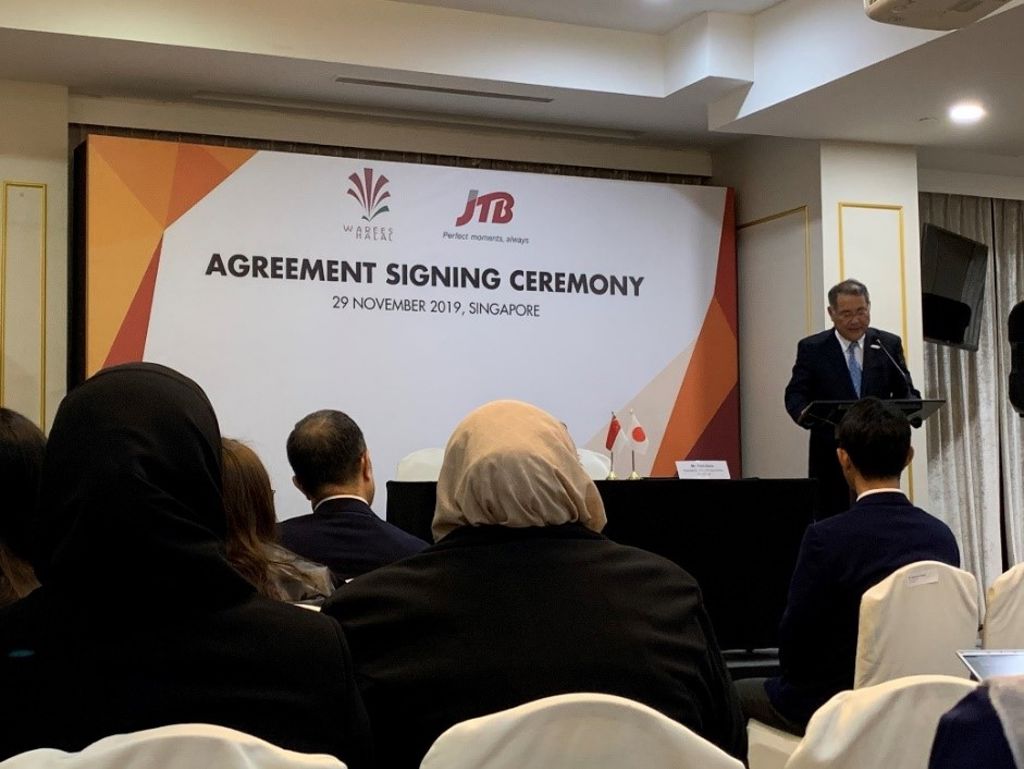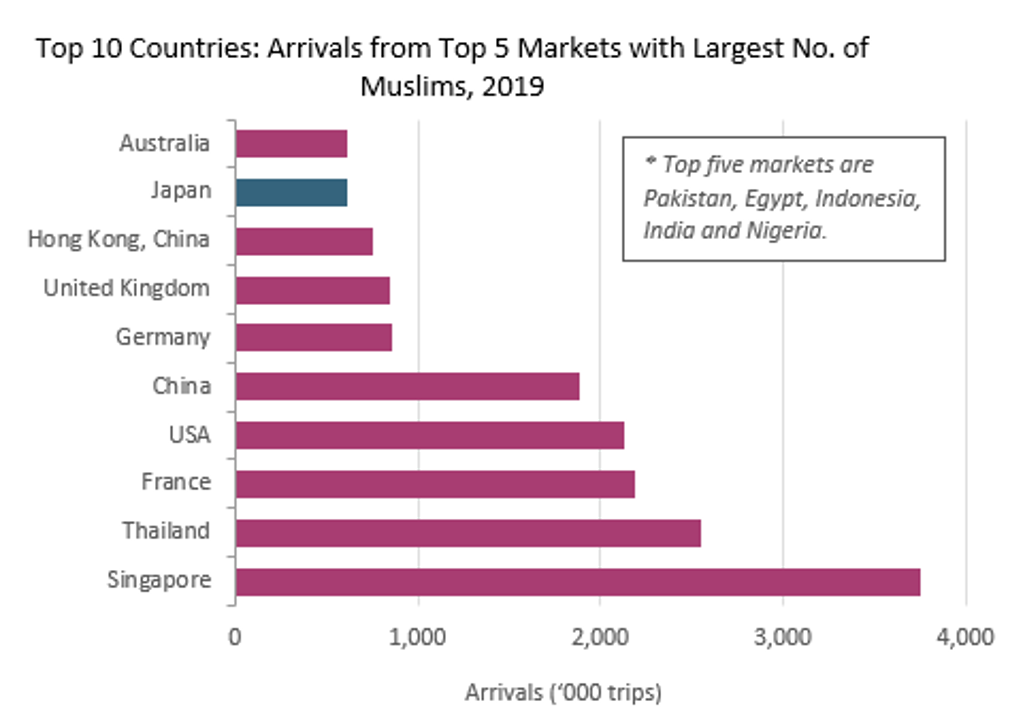Travel industry a lucrative means for firms to penetrate the halal market
For travelling consumers, “discovery” is increasingly a key component of customers’ experiences. Firms can expect travellers who follow the halal diet to become more exploratory with their food and drink choices as well, as long as their religious requirements are fulfilled. The rising number of middle-income households helps to accelerate discovery, with more consumers having deeper pockets to spend on discretionary items and even splurge on novel products.
This is made more pertinent as strong growth in travel is expected from consumers from the Middle East and Africa, as well as Asia Pacific. These regions include Indonesia, Pakistan, India, Nigeria and Egypt which are home to the largest number of Muslims globally.
Source: Euromonitor International
PyeongChang 2018: A step forward for halal in South Korea and the growth of K-Food
The latest major international sporting event in Asia hosted by a Muslim-minority country was the Olympics in South Korea. In accordance with the halal food standards set by the Department of Islamic Development Malaysia (JAKIM), it provided halal meals for athletes and personnel. The “halal food zone” located within the Athletes Dining Hall was certified halal by the Korea Muslim Federation and operated by Shinsegae Food. The latter also collaborated with a popular Malaysian chef and a Malaysian food manufacturer, Mamee Double Decker Sdn Bhd.
These business partnerships whose capabilities align with halal standards, while offering both local and international cuisine, represented a significant milestone for the halal industry in South Korea. To pull off a large-scale catering stint for a wave of international athletes while keeping to a JAKIM-approved halal standard might suggest that South Korea is in a good position to support foreign tourists with halal dietary needs.
Halal certification is one of the potential strategies for South Korean businesses to penetrate Southeast Asia and drive interest in K-food. This plays a strong role in promoting Korean culture and the characteristics of its local food products such as quality and flavours, potentially interest in other fmcg products as well such as drinks, beauty, appliances etc. Global events that draw in tourists, such as sports and entertainment, act as a stage for domestic manufacturers to prove their capabilities in adapting to international preferences while retaining their local authenticity.
JTB partners with Singapore’s Warees in the months leading up to Tokyo 2020
On 29th November 2019, Japan’s major travel agency, JTB Pte Ltd, signed an agreement to partner with Singapore’s sole international halal certification and advisory agency, Warees Halal Ltd. The partnership aims to promote and facilitate the provision of halal-compliant food and beverages for the potential influx of tourists and athletes over the Tokyo 2020 period during July-September 2020.
Mr Toru Ikuta, President and CEO of JTB Asia Pacific gives a speech before the ceremonial signing
Source: Euromonitor International
Warees’ role is to help Japan’s government and its businesses adapt to Japan’s diversifying tourist profile. This is especially pertinent with the backdrop of Japan being a Muslim-minority country; halal-compliance along the food supply chain is uncommon, coupled with relatively low understanding of halal standards among local firms. Singapore’s Warees is a relatable agency for this purpose, given that Singapore’s halal standards are globally renown despite Singapore being a Muslim-minority nation as well.
Authentic food aligned with dietary needs is a way of exporting local culture
With food increasingly regarded as a key part of a traveller’s itinerary and an authentic experience of other cultures, halal-certified businesses could look towards catering to tourists beyond the local demographic. Japan is well-positioned for this direction given that it is among the top 10 countries with the largest number of arrivals from major Muslim-populous markets.
Source: Euromonitor International
Motivating spending and pushing the promotion of Japanese products to Muslim tourists is especially well-timed given that the Japanese government’s efforts to raise its number of tourist arrivals to 40 million by 2020 still has some way to go, only surpassing 31.2 million visitors by the end of 2018, according to Euromonitor International. This number is expected to peak at 34.8 million by the end of 2020 – short of its goal by more than five million trips, which might only be realised by 2024.
With Japanese food and products already established as high quality and with unique flavours, the Warees partnership could help businesses make their products more globally accessible to halal diets.
Related analysis:
1. Kosher and Halal Certification in Packaged Food and Drinks (August 2019)
2. K-Food Knocks at the Global Market with Fusion Korean Cuisine (March 2019)



